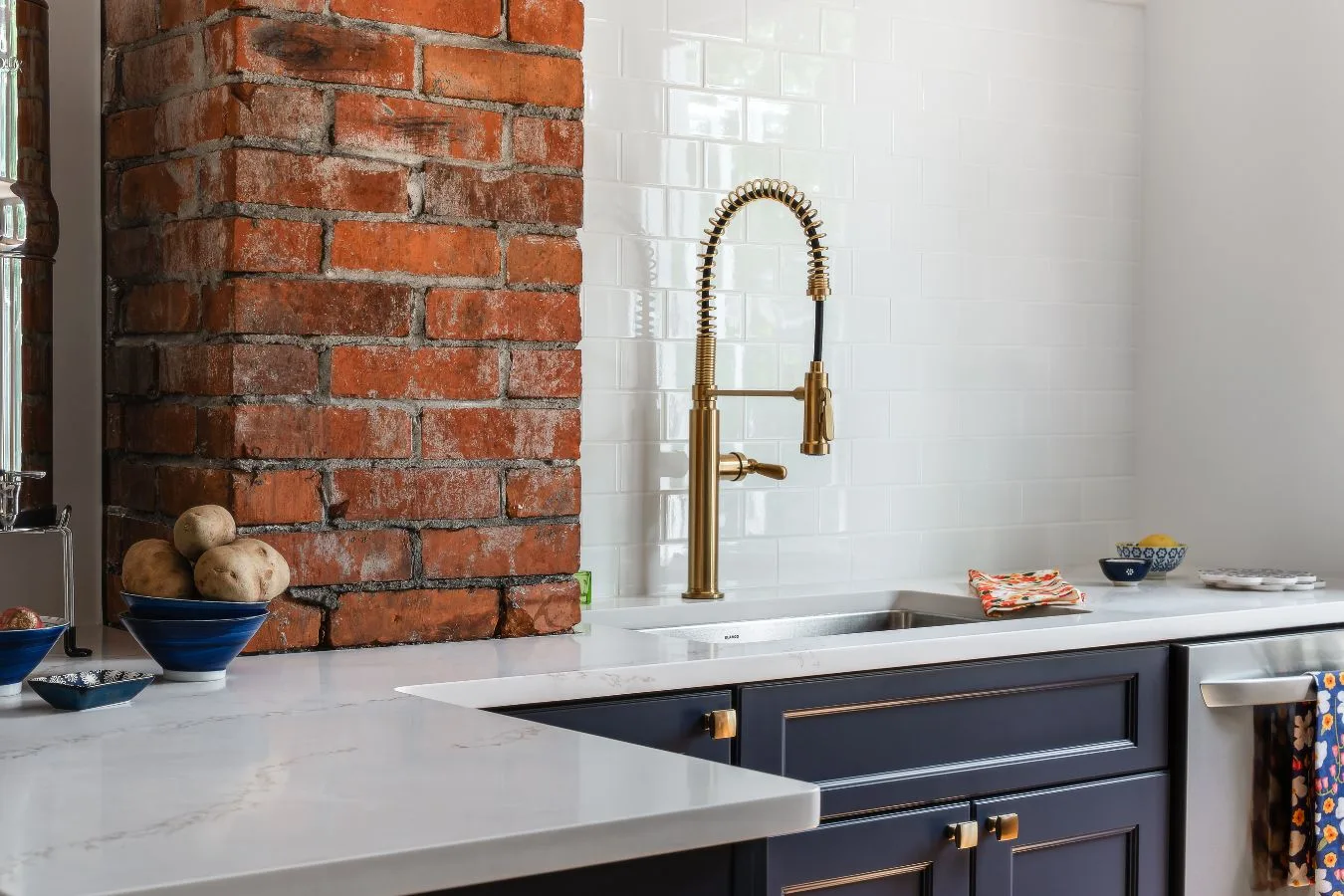Home Remodel Blog
Eco-Friendly Kitchen Remodel: 6 Smart Strategies to Reduce Carbon Footprint
Eco-Friendly Kitchen Remodel: 6 Smart Strategies to Reduce Carbon Footprint
Are you planning an eco-friendly kitchen remodel that balances environmental responsibility with style, functionality, and budget? You’re part of a growing trend.
Whether environmental sustainability is your top priority or just one consideration among many, understanding your eco-friendly options helps you make informed decisions that align with your values and budget.
This guide explores six smart strategies for creating an eco-friendly kitchen remodel that reduces your carbon footprint while increasing your home’s value and your daily quality of life.
Why Consider an Eco-Friendly Kitchen Remodel?
Before exploring specific strategies, it’s worth understanding why eco-friendly kitchen remodeling has become increasingly popular.
Key Benefits of Eco-Friendly Kitchen Remodel Projects:
Environmental Impact:
- Reduced carbon footprint through energy-efficient appliances
- Lower water consumption with conservation fixtures
- Less waste sent to landfills through material choices
- Decreased reliance on non-renewable resources
Financial Benefits:
- Lower monthly utility bills from energy and water savings
- Potential tax credits and rebates for energy-efficient upgrades
- Increased home value (buyers increasingly seek green features)
- Longer-lasting materials reduce replacement costs
Health Advantages:
- Reduced exposure to toxic chemicals from low-VOC materials
- Healthier cooking environment
- Improved ventilation systems
Home Value: According to the National Association of Realtors, homes with energy-efficient features and sustainable materials increasingly appeal to buyers, particularly younger generations who prioritize environmental responsibility.
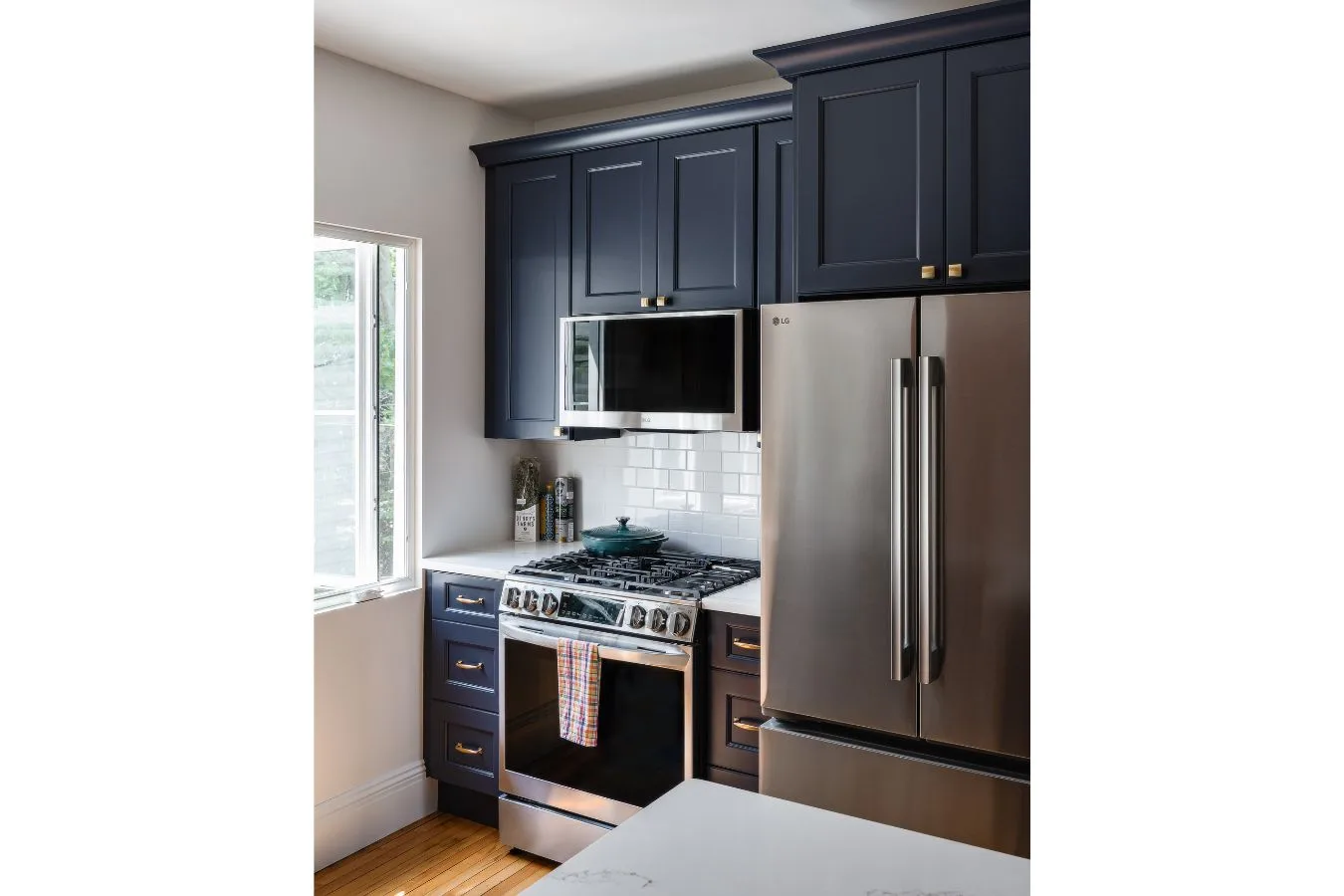
Energy-Efficient Appliances: Immediate Impact on Carbon Footprint
The most impactful decision in any eco-friendly kitchen remodel is appliance selection. Modern energy-efficient appliances dramatically reduce energy consumption while often providing superior performance.
ENERGY STAR Certified Appliances:
ENERGY STAR certification, backed by the U.S. Environmental Protection Agency, identifies appliances that meet strict energy efficiency guidelines. Choosing ENERGY STAR appliances for your eco-friendly kitchen remodel delivers measurable benefits:
- Refrigerators: Use 15% less energy than non-certified models
- Average savings: $270 over appliance lifetime
- Cost: $1,200-$4,000
- Dishwashers: Use 12% less energy and 30% less water
- Average savings: $35 annually
- Cost: $600-$1,800
- Ranges and Cooktops: Efficiency varies by type
- Induction cooktops: 90% energy transfer efficiency
- Electric: 75% efficiency
- Gas: 40% efficiency
- Cost: $800-$3,500
Induction Cooking: The Eco-Friendly Choice:
Induction cooktops represent the most energy-efficient cooking option for your eco-friendly kitchen remodel. They heat cookware directly through electromagnetic energy, wasting minimal heat and reducing cooking times by up to 50%.
New York State Rebates:
New York State also offers various rebates and incentives for energy-efficient appliance purchases, improving your return on investment.
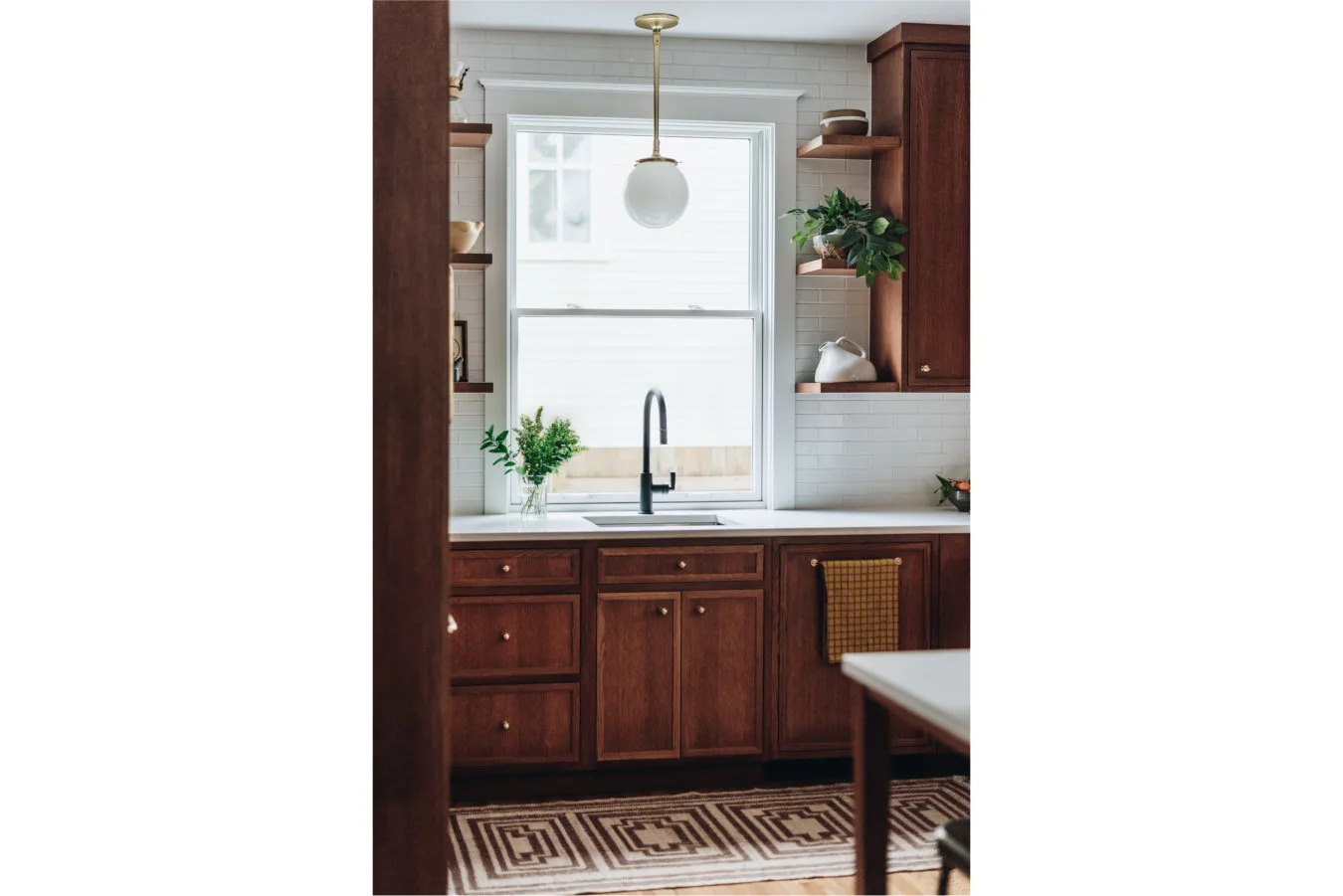
Sustainable Cabinetry: Quality Materials That Last
Kitchen cabinets typically account for 35-40% of your total kitchen remodel budget, making material selection crucial for both environmental impact and long-term value.
Eco-Friendly Cabinet Material Options:
FSC-Certified Wood: Forest Stewardship Council (FSC) certification ensures wood comes from responsibly managed forests that provide environmental, social, and economic benefits.
- Cost premium: 10-20% over non-certified wood
- Benefit: Supports sustainable forestry practices
- Availability: Growing selection of species and styles
Bamboo Cabinets: Bamboo is a rapidly renewable resource that reaches maturity in 3-5 years compared to 30-50 years for hardwood trees.
- Cost: Comparable to mid-range hardwood cabinets
- Benefits: Strong, moisture-resistant, modern aesthetic
- Considerations: Quality varies; ensure solid bamboo construction
Reclaimed or Salvaged Wood: Using reclaimed wood eliminates the need for new tree harvesting while creating unique, character-rich cabinets.
- Cost: $200-$500 per linear foot (custom)
- Benefits: Unique appearance, zero new resources, reduced waste
- Considerations: Limited availability, may require custom work
Low-VOC and Formaldehyde-Free Options:
Volatile Organic Compounds (VOCs) off-gas from traditional cabinet finishes and adhesives, contributing to poor indoor air quality. For your eco-friendly kitchen remodel, specify:
- Zero-VOC or low-VOC finishes
- Formaldehyde-free plywood and adhesives
- Water-based stains and sealers
Durability Equals Sustainability:
At TBrothers Renovations, all of our cabinetry is made from plywood, hardwood, MDF, or HDF—never particle board. Quality materials last longer, which is fundamentally sustainable. Cabinets that maintain their structure and appearance for 30+ years eliminate the waste and resource consumption of premature replacement.
We use metal leveling systems on all cabinet installations, not wooden shims that decay or compress over time. These quality installation practices ensure your sustainable material investment delivers its full environmental benefit through longevity.
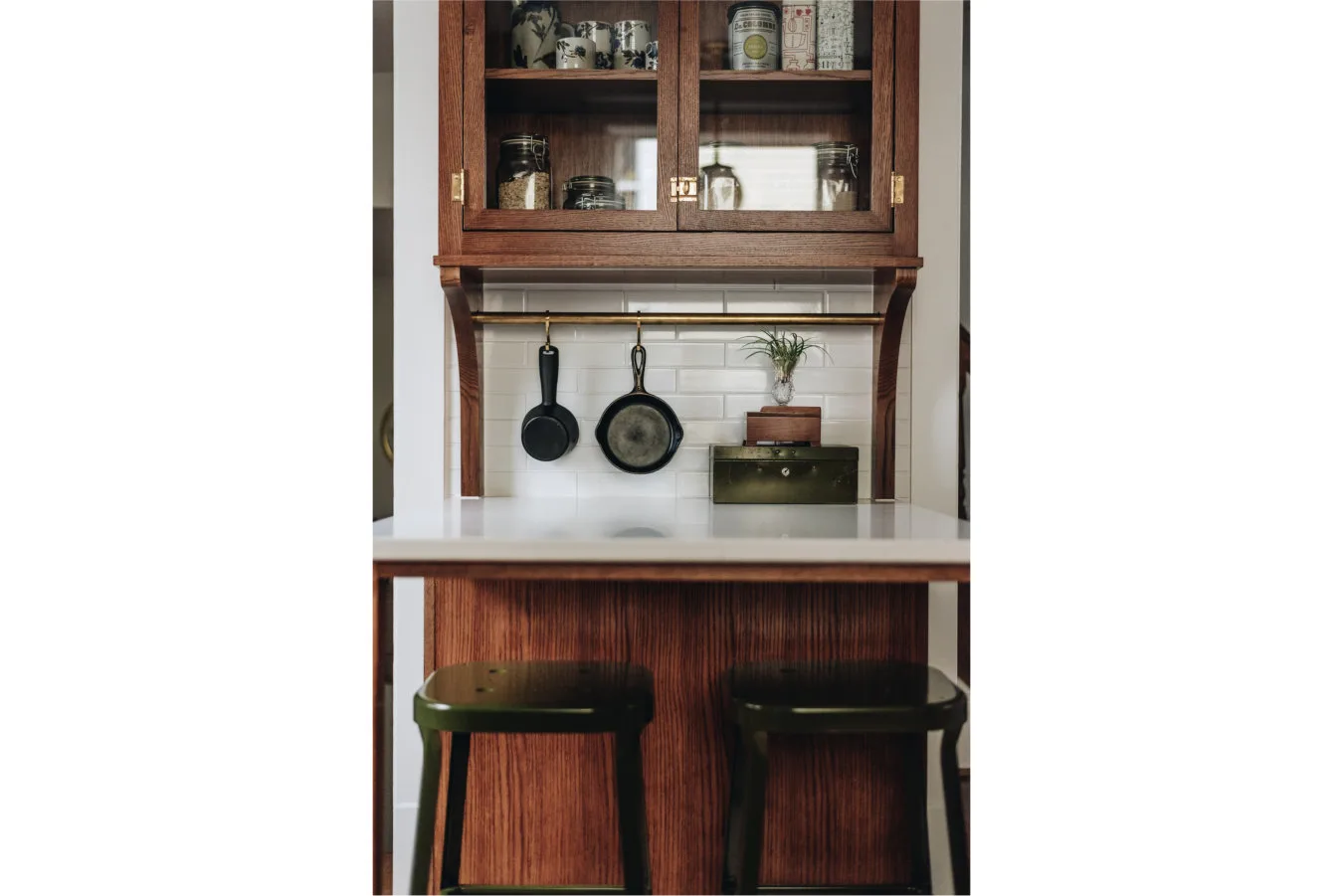
Environmentally Conscious Countertop Selections
Countertop choices significantly impact the environmental footprint of your eco-friendly kitchen remodel, with options ranging from recycled materials to locally-sourced stone.
Sustainable Countertop Materials:
Recycled Glass Countertops: Made from post-consumer recycled glass embedded in cement or resin binders.
- Cost: $50-$100 per square foot installed
- Benefits: Diverts waste from landfills, unique appearance, durable
- Considerations: May require sealing, limited color palette
Recycled Paper Composite: Brands like Paperstone use post-consumer recycled paper compressed with non-petroleum resin.
- Cost: $45-$85 per square foot installed
- Benefits: FSC-certified, heat-resistant, unique texture
- Considerations: Requires periodic oiling
Quartz with Recycled Content: Many quartz manufacturers incorporate recycled glass or stone in their products.
- Cost: $60-$150 per square foot installed
- Benefits: Low maintenance, highly durable, recycled content varies (check specifications)
- Considerations: Manufacturing process is energy-intensive
Locally-Sourced Stone: Choosing granite or other stone from regional quarries reduces transportation emissions.
- Cost: $50-$200 per square foot installed
- Benefits: Reduced carbon footprint from transportation, supports local economy
- Considerations: Limited to available local stone types
Reclaimed Wood Countertops: Salvaged wood from barns, factories, or other buildings creates unique, sustainable counters.
- Cost: $100-$200 per square foot (custom)
- Benefits: Character-rich appearance, zero new resources
- Considerations: Requires maintenance, not ideal for high-moisture areas
Concrete with Fly Ash: Concrete countertops incorporating fly ash (a coal combustion byproduct) reduce cement content and divert industrial waste.
- Cost: $65-$135 per square foot installed
- Benefits: Customizable, diverts waste, durable
- Considerations: Requires sealing, can crack

Water Conservation: Fixtures and Systems
Water conservation represents a critical component of any eco-friendly kitchen remodel, with modern fixtures offering significant savings without sacrificing performance.
EPA WaterSense Certified Faucets:
WaterSense labeled faucets use at least 30% less water than standard faucets while maintaining strong performance.
- Standard faucet flow: 2.2 gallons per minute (GPM)
- WaterSense faucet flow: 1.5 GPM or less
- Annual savings: 700+ gallons per household
- Cost: (comparable to non-certified faucets)
Touchless Faucets:
Sensor-activated faucets reduce water waste by automatically shutting off when not in use.
- Typical savings: 70% reduction in water use
- Cost: $200-$800
- Additional benefit: Improved hygiene
High-Efficiency Dishwashers:
Modern ENERGY STAR dishwashers use as little as 3 gallons per cycle compared to 10+ gallons for older models.
- Savings: 3,870 gallons annually compared to hand washing
- Also saves energy by heating less water
Water Filtration Systems:
Installing a whole-house or point-of-use filtration system eliminates bottled water waste.
- Cost: $300-$2,000 installed
- Benefits: Reduces plastic waste, improves water quality, cost savings over bottled water
- Options: Under-sink, countertop, or whole-house systems
Instant Hot Water Dispensers:
These systems provide immediate hot water, eliminating the waste of running faucets while waiting for water to heat.
- Saves: 2-3 gallons per day in typical households
- Additional benefit: Convenience
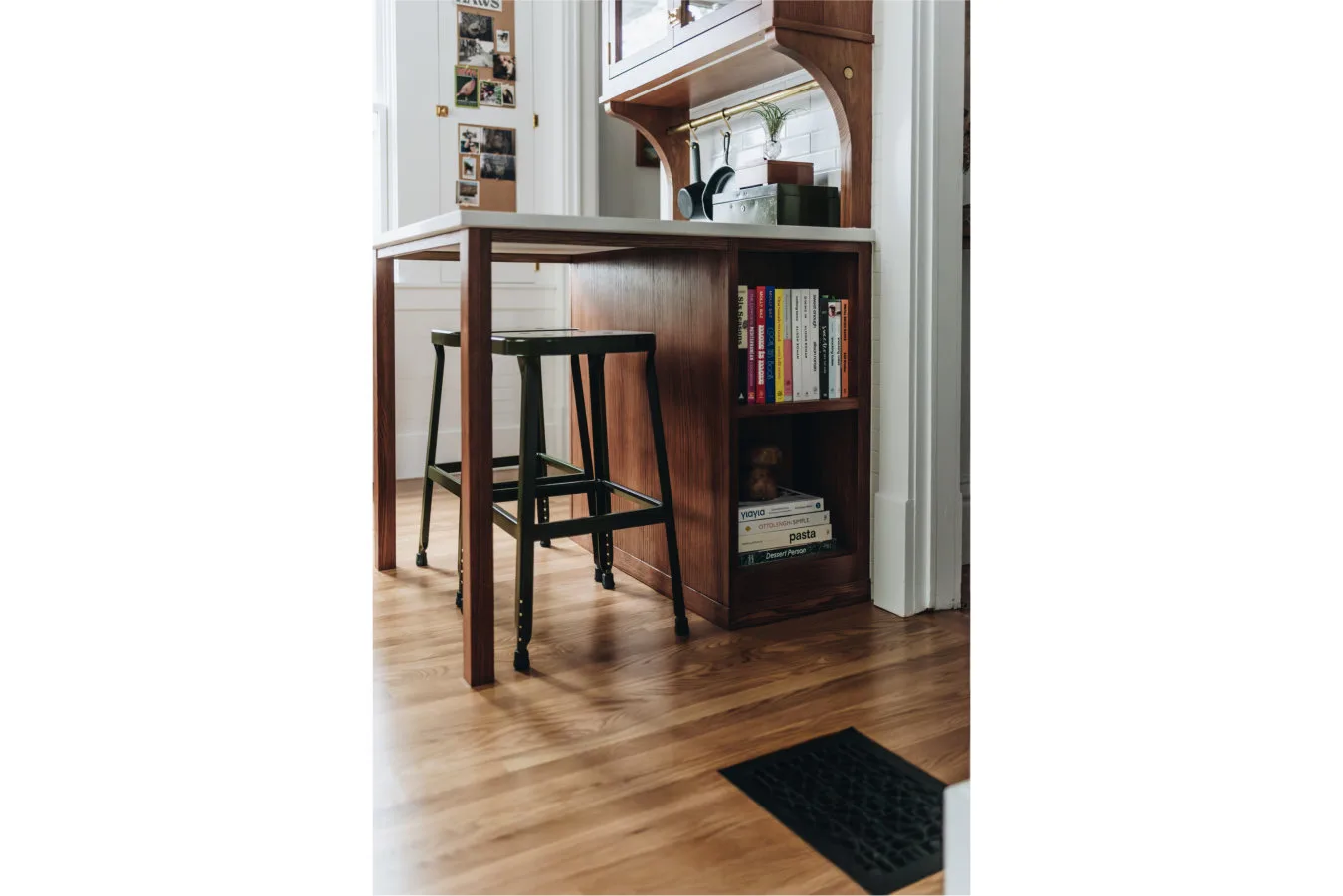
Sustainable Flooring for Your Eco-Friendly Kitchen Remodel
Kitchen flooring choices impact both your carbon footprint and your daily comfort, with several eco-friendly options offering durability and style.
Environmentally Friendly Flooring Options:
Cork Flooring: Harvested from the bark of cork oak trees without harming the tree, cork regenerates every 9 years.
- Cost: $5-$12 per square foot installed
- Benefits: Renewable, comfortable underfoot, natural insulation, antimicrobial
- Considerations: Requires sealing, may fade in direct sunlight
Bamboo Flooring: Like bamboo cabinetry, bamboo flooring uses a rapidly renewable resource.
- Cost: $5-$15 per square foot installed
- Benefits: Hard and durable, moisture-resistant, modern appearance
- Considerations: Quality varies significantly; choose strand-woven for durability
Reclaimed Hardwood: Salvaged wood from old buildings, barns, or factories provides unique character with zero new trees harvested.
- Cost: $8-$20 per square foot installed
- Benefits: Unique appearance, no new resources, often old-growth wood with superior density
- Considerations: Limited availability, may show wear (often considered desirable)
FSC-Certified Hardwood: New hardwood from certified sustainable forests balances traditional beauty with environmental responsibility.
- Cost: $6-$20 per square foot installed
- Benefits: Supports sustainable forestry, classic appearance, long lifespan
- Considerations: Slight premium over non-certified wood
Natural Linoleum: True linoleum (not vinyl) is made from linseed oil, cork dust, wood flour, and natural resins.
- Cost: $4-$8 per square foot installed
- Benefits: Biodegradable, naturally antimicrobial, durable (30-40 year lifespan)
- Considerations: Limited residential availability, distinct appearance
Recycled Tile: Tiles made from recycled glass, porcelain, or other materials divert waste while creating durable flooring.
- Cost: $8-$25 per square foot installed
- Benefits: Diverts waste, highly durable, water-resistant
- Considerations: Grout maintenance required
Quality Installation for Longevity:
Regardless of the eco-friendly flooring you choose for your kitchen remodel, proper installation ensures maximum lifespan. We use STRATA_MAT™ under tile and stone installations. This membrane prevents cracking if the house settles or experiences shifting movement, acting as a bridge between surfaces.
STRATA_MAT™ also offers installation advantages:
- Lightweight and easier to handle than heavy backer boards
- Mortar hydration vents allow next-day grouting
- Reduces installation time and labor
Preventing premature flooring failure through quality installation materials is fundamentally sustainable—it eliminates waste from replacement and extends the environmental benefit of your material choice.
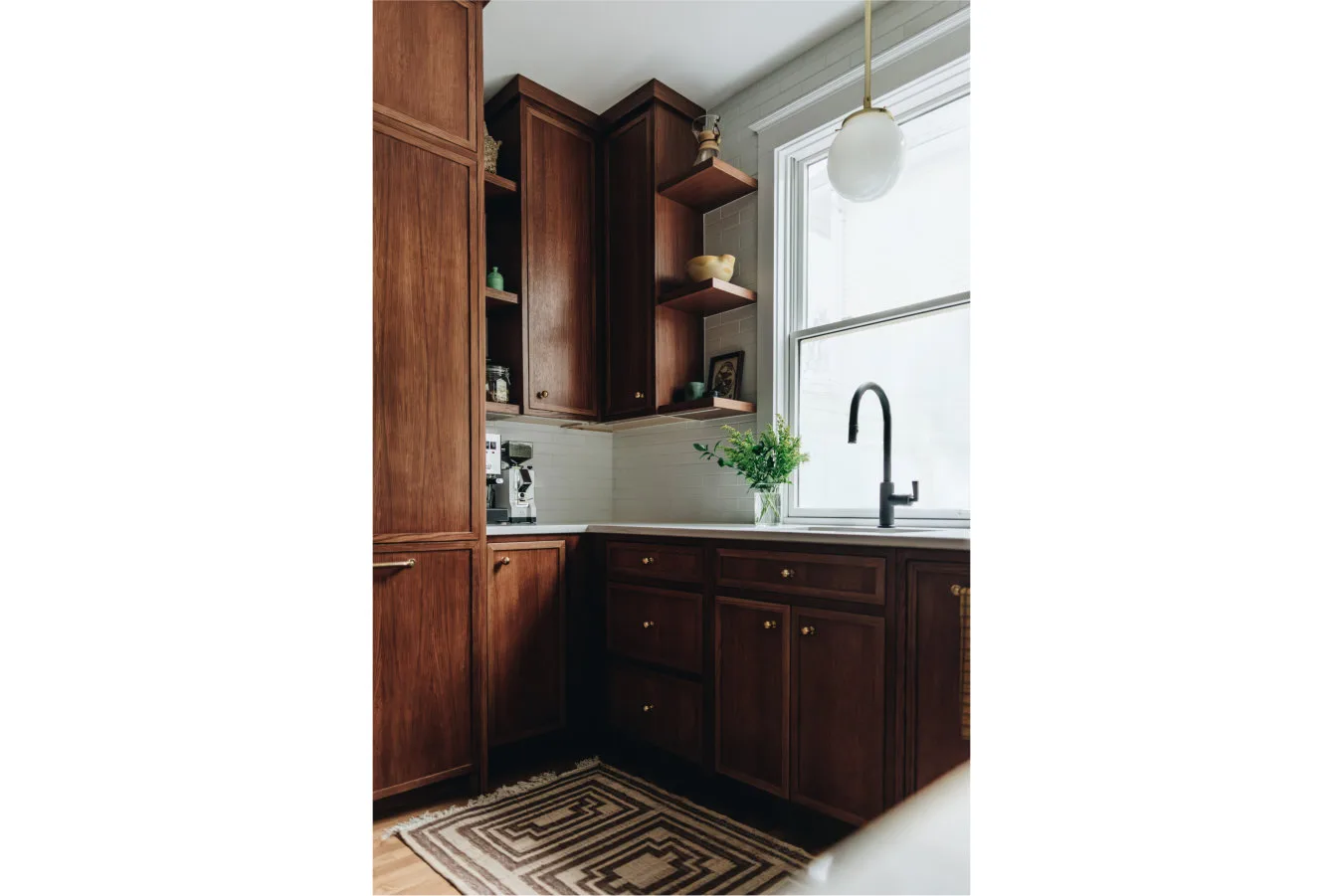
Healthy Indoor Air Quality Through Material Selection
Indoor air quality significantly impacts your family’s health, making low-toxicity materials an important consideration in any eco-friendly kitchen remodel.
Low-VOC and Zero-VOC Paints:
Traditional paints release volatile organic compounds that contribute to poor indoor air quality and health issues.
Major paint manufacturers now offer extensive low-VOC and zero-VOC selections in all colors and finishes.
Formaldehyde-Free Materials:
Formaldehyde, used in many building materials and adhesives, off-gases for years after installation.
For your eco-friendly kitchen remodel, specify:
- Formaldehyde-free plywood and engineered wood
- Low-emission or no-added-formaldehyde (NAF) cabinets
- Formaldehyde-free insulation
- Water-based adhesives and sealants
Natural and Non-Toxic Finishes:
- Water-based polyurethanes and sealers
- Natural oil finishes (tung oil, linseed oil)
- Beeswax-based products
- Natural wood stains
Additional Eco-Friendly Kitchen Remodel Considerations
Lighting Efficiency:
LED lighting uses 75% less energy than incandescent bulbs and lasts 25 times longer.
- Lifespan: 25,000-50,000 hours vs. 1,000 hours for incandescent
Natural Light Maximization:
Incorporating larger windows, skylights, or solar tubes reduces daytime lighting needs.
Waste Reduction During Construction:
Consider asking your contractor about:
- Donating usable materials from demolition
- Recycling construction waste
- Efficient material ordering to minimize excess
- Cabinet refacing vs. replacement when appropriate
Local Material Sourcing:
Choosing locally-sourced materials and products reduces transportation emissions and supports your regional economy.
Available Incentives:
New York State offers various rebates and incentives for energy-efficient home improvements:
- ENERGY STAR appliance rebates
- Energy-efficient window tax credits
- High-efficiency heating/cooling incentives
- Solar energy system credits
Check current programs through NYSERDA (New York State Energy Research and Development Authority) and federal tax credit programs.
Important Note About Pricing: The cost estimates provided in this guide are based on current market averages and typical project scenarios in the Western New York area. However, pricing for materials and labor can fluctuate frequently due to market conditions, supply availability, and other factors.
For an accurate, personalized estimate tailored to your specific eco-friendly kitchen remodel, we encourage you to contact TBrothers Renovations directly. We provide transparent, detailed estimates through our Get Started page.
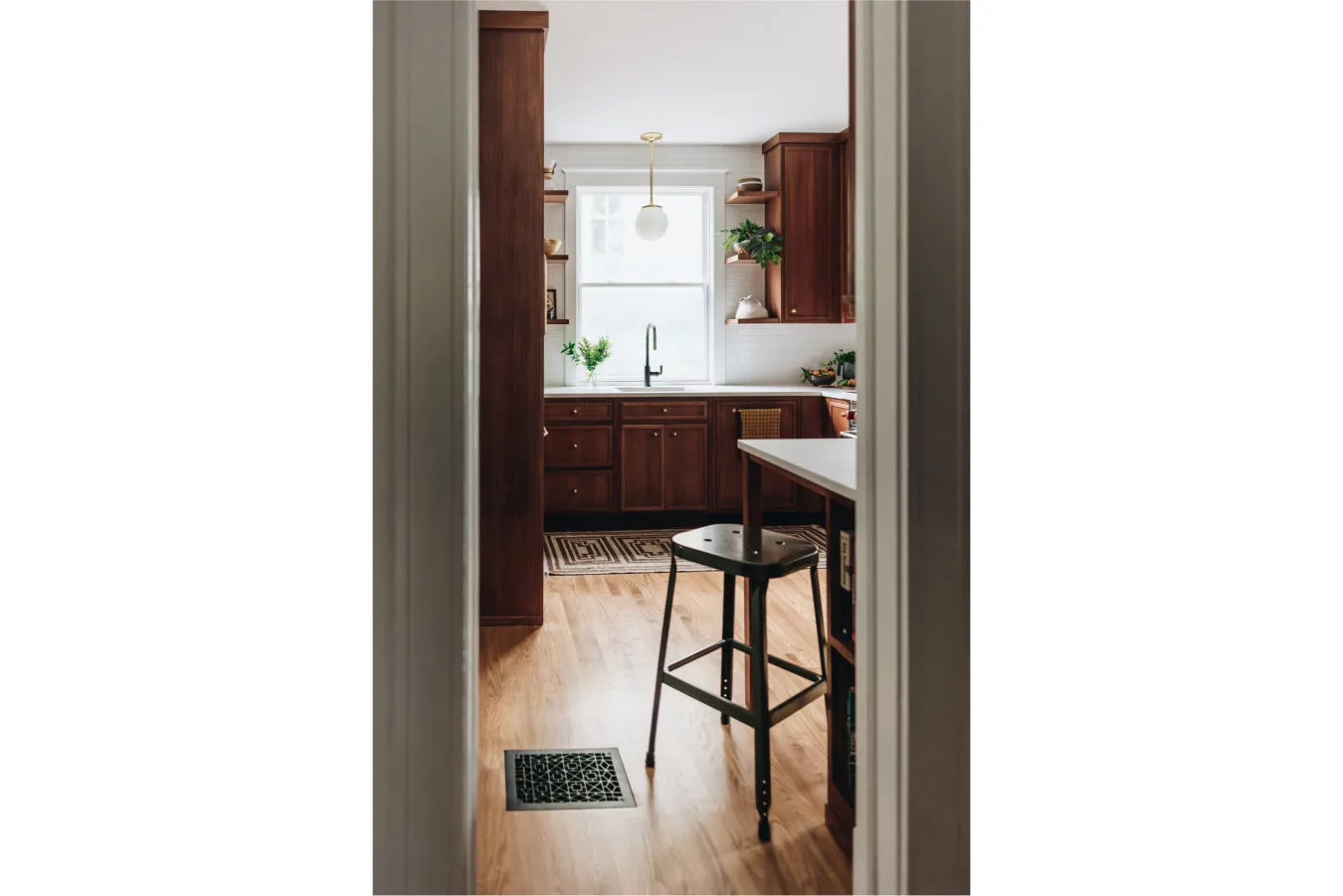
Transform Your Kitchen with Confidence
An eco-friendly kitchen remodel offers benefits that extend well beyond environmental impact—including lower operating costs, healthier indoor air quality, increased home value, and the satisfaction of making responsible choices for your family and future generations.
At TBrothers Renovations, we’ve been helping Western New York homeowners create beautiful, functional kitchens since 2015. Whether your project prioritizes sustainability, budget, style, or a combination of factors, our expertise ensures your renovation delivers results you’ll enjoy for decades.
Ready to Plan Your Eco-Friendly Kitchen Remodel?
Contact TBrothers Renovations today for a free consultation where we’ll discuss your vision, explore eco-friendly options that fit your budget, and provide a detailed estimate for your kitchen renovation project.
TBrothers Renovations has proudly served Western New York since 2015, specializing in quality kitchen renovations. Our family-owned business combines superior materials, expert craftsmanship, and exceptional customer service to create kitchens that homeowners love. We work with clients who have diverse priorities—from sustainability to budget to style—delivering professional results that stand the test of time.
Service Areas: All Western New York, including Buffalo, Amherst, Williamsville, Clarence, Kenmore, Tonawanda, Grand Island, Lancaster, Depew, Cheektowaga, West Seneca, Akron, Elma, Wheatfield, Lockport, Lewiston, and Niagara Falls.

